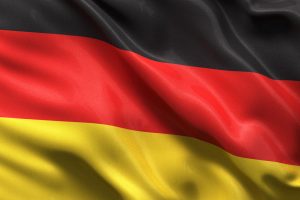French President Emmanuel Macron’s efforts to break the political deadlock in France have taken on a sense of urgency as he narrows down his search for a new Prime Minister. Scheduled meetings with former presidents and prominent political figures highlight the complexity of the situation.
At the heart of this process is the need for a leader who can navigate the fractured political landscape and drive the reforms that France desperately needs. One of the leading candidates, Mr Bernard Cazeneuve, stands out as a figure capable of bridging political divides. A Prime Minister under Mr Macron’s predecessor François Hollande, Mr Cazeneuve has experience in key ministerial roles, including European Affairs, Budget, and Interior.
Advertisement
His departure from the Socialist party two years ago, in protest against its alignment with the far-left, positions him as a centrist who could appeal to both the left and the right. This balancing act is crucial in a hung Parliament. Mr Macron’s decision to call a snap election in July backfired, leaving him with a weakened centrist coalition and a Parliament that is deeply divided. The political paralysis that has ensued is not only a reflection of France’s fractured political environment but also a warning for the broader European political landscape. The rise of populism, coupled with the growing influence of both far-right and far-left parties, has made governance increasingly difficult in many European countries. France is no exception. The challenge for Mr Macron’s next Prime Minister will be to forge coalitions that can pass critical legislation, including the 2025 budget, while satisfying the demands of a diverse and often conflicting set of political interests. This will require not only political acumen but also a deep understanding of the economic pressures facing France. The European Commission and bond markets are closely watching France’s fiscal situation, and the new government will be under immense pressure to reduce the country’s deficit. Mr Xavier Bertrand, another candidate under consideration, represents a more conservative option. As president of the Hauts-de-France region, Mr Bertrand has built a reputation as a pragmatic leader. However, his chances of becoming Prime Minister seem slimmer compared to Mr Cazeneuve, who enjoys greater respect across the political spectrum. In a hung Parliament, this respect may prove to be the decisive factor.
Despite the complexities of the current political situation, one thing is clear: France needs stable leadership. Mr Macron’s ability to select a Prime Minister who can unite Parliament and push through necessary reforms will define the remainder of his presidency. Failure to do so could lead to prolonged political instability, with potentially serious consequences for France and the European Union. Ultimately, Mr Macron’s decision will reflect his own vision for France’s future. Whether he opts for Mr Cazeneuve or another candidate, the new Prime Minister will face a daunting task. But with the right leadership, France can navigate this period of uncertainty and emerge stronger.











